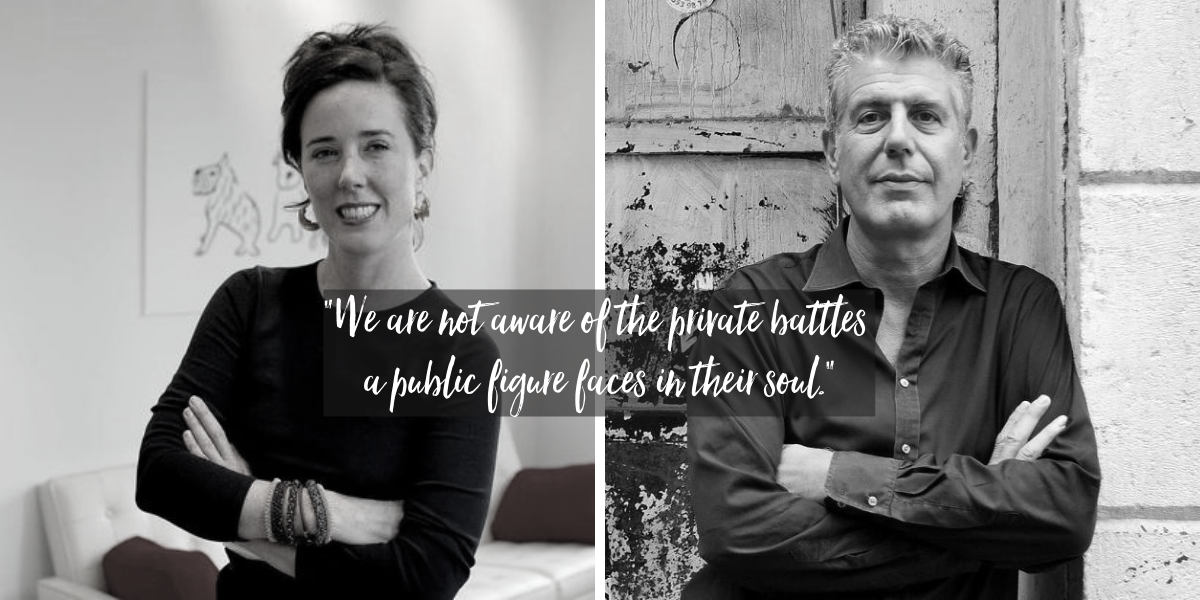WHAT MAKES SOMEONE DECIDE TO COMMIT SUICIDE?
When a loved one or a public figure commits suicide, we all ask the question why? Even though suicide rates are climbing every year in the United States, the medical community is still struggling to distinguish those people who are thinking about suicide versus those people who follow through with the act.
From a scientific viewpoint, there is a myriad of components related to people who are at risk of committing suicide:
- An associated psychiatric diagnosis such as depression or psychosis
- Life transition that is difficult to cope without hope for help.
- Neurobiology of the brain and the body
- The presence of another chronic disease elsewhere in the mind or body causing a desire to end their lives.
- Psychology: Someone may be crying out for help or they may have impulsive behavior. In people with impulsive behaviors, they may give up cravings for alcohol or drugs that helped them to numb the pain. Without the addictive substance present to numb the mind, it can lead to an increased risk of suicide.
While all of the above scenarios are scientifically shown to increase the risk of suicide, very little is understood between those people who contemplate suicide versus those who follow through with the act.
BRAIN STRUCTURE & FUNCTION OF PEOPLE WHO COMMIT SUICIDE
Is there a genetic, structural, or chemical component in people’s brains who are more likely to commit suicide?
In the last decade, autopsy studies show that a specific gene is more commonly present in depressed patients who committed suicide in the area of the brain called the anterior cingulate gyrus (ACC). The result of this gene In the ACC significantly enhanced expression of genes related to glutamatergic or GABAergic synaptic transmission. This increase in GABAergic and glutamate-related genes is thought to be a possibility of suicide, and not depression
Functional MRI and computer studies found that people who are thinking about killing themselves appear to have distinctive brain activity.
In these people, words like “death” and “trouble” produce a distinctive “neural signature” not found in others, scientists report in the journal Nature Human Behaviour.
So as brain science advances, we know specific genetic and behavioral factors are present in those who commit suicide, but it still does not answer the question, why?
HOLISTIC OR SPIRITUAL VIEW OF ENDING ONE’S LIFE
I am not going to address the religious aspects of many religions that have strong opinions about suicide; it is out of the scope of my expertise nor is it what my mission stands for in the hope to improve brain and mental health holistically.
In studying Buddhism, Sufism, and mindfulness-based psychology for the last decade- I can say there is still not much written about what happens to the spirit in someone who is ending their lives consciously. The Buddhists and Sufis tend to frown upon ending one’s life by one’s own hand. At the core of the act is suffering not only from the individual who took his or her life but the suffering of all those in their lives left behind.
In Buddhism, a state of mind in lower consciousness has symptoms based on craving, hatred & delusion. This state will give rise to actions that lead to consequences of increased suffering and decreased happiness. Instead, the goal is to live in a higher state of consciousness of compassion and love that will decrease suffering and increase happiness.
Sufis also try to open up to the attraction of living.
We can say that one aspect that is neglected in many traditional psychiatry and psychology practices is recognizing the spiritual healing many may need who are depressed, face addiction, or other diagnosis related to mental health. Integrative medicine treats the patient as a whole being, understanding that the mind, body, and spirit must be healed.
CONVERSATION TO HAVE WITH CHILDREN AND LOVED ONES ABOUT SUICIDE.
As a brain doctor bridging both Western & Eastern medicine, do not judge someone’s path or underestimate the importance of seeking professional help.
The loss of two celebrated public figures this week, makes us all take pause to wonder why suicide rates are climbing in the US. What can we do about this?
- Do not estimate the power of seeing a professional licensed mental health counselor and/or physician for a diagnosis.
- Avoid self-diagnosis from the internet.
- If you see a loved one struggling emotionally, help them to seek professional help. Understand that they may have shame in seeking help, and empower them to make the right decision.
- Have compassion for a fellow family member or coworker who may seem moody, negative, or in a dark place. Sharing one smile or letting them know they are not alone will help that person to start to heal the soul.
- If a loved one talks about death or ending their life, avoid dismissing them with statements such as, “you should not be sad, you have everything.” “Chin up, life will get better.” Hear their concerns, let them know they are not alone and follow up with getting help.
Rest in peace Kate Spade.
Rest in peace Anthony Bourdain.
Let us learn to be there for one another in the spirit of compassion, peace, and love.
Dr. Romie

